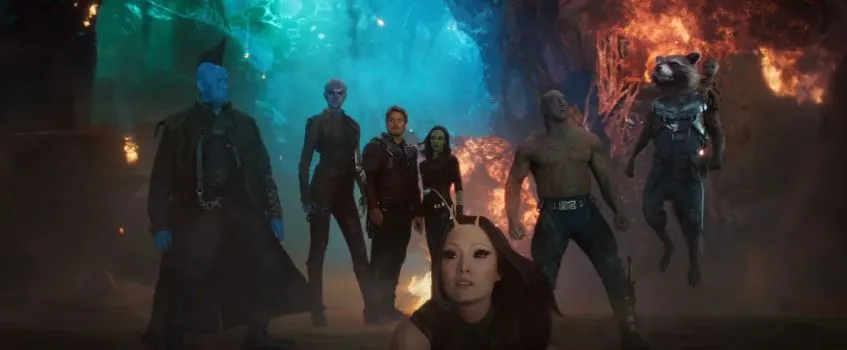Superheroes are often imagined as all-powerful beings that serve as defenders of people. For decades, iconic superheroes such as Superman, Wonder Woman, and The Avengers have represented this ideal by fighting evil forces and saving the world from destruction. Their triumphs are so empowering that kids and adults aspire to be like them and that is a wonderful thing. However, some people have become so used to seeing superheroes save the day that they overlook when superheroes have to save themselves.
In a recent review of Guardians of the Galaxy 2, Dan Kois bemoans the many emotional moments that occur between the characters. He states that the feelings explored among the main heroes of the film should either remain unspoken or displayed through action scenes and camaraderie. “I did wish that sometimes these characters would demonstrate a little good old-fashioned stoic repression,” he writes. “What I want from the Guardians of the Galaxy is not for them to explain that they love each other but to show that they love each other by supporting each other in battle, by backing each other up, by cracking wise or busting chops.”
Since I haven’t seen Guardians of The Galaxy 2 yet, I can’t say what the film does or doesn’t need. However, it bothers me that someone would complain about the abundance of emotions displayed in a superhero film. If the review is any indication, the Guardians of the Galaxy show more emotions among the characters than some of the other superhero films out there. The most egregious example is Batman Vs Superman, which has Batman and Superman being manipulated by Lex Luthor to beating the crap out of each other.
When you watch Batman Vs Superman, one can’t help but feel that Bruce Wayne is violently taking out his repressed emotions on Superman. Never mind that he and Superman have suffered tragic personal losses and don’t want to see anyone else die. Never mind that they could’ve combined their investigative skills and figured out that Lex Luthor was using them. These things aren’t important, because what really matters is to see two iconic superheroes fighting each other until they have to work together.
Even though superheroes are fictional characters, they are influenced by our real-life views of gender. The idea that any superhero film is too emotional is the result of the hypermasculinity of superhero films, which affects how male and female characters are portrayed onscreen. While the male characters get to be the important heroes that defeat their threats with violence and anger, the female characters have their stories and emotions revolving around men as a secondary hero or love interest.
Not only does expecting superheroes to suppress their emotions impact gender roles, but it also does a disservice to the humanity of the characters and how that appeals to the audience. One of my favorite male superhero characters is anti-hero John Constantine. In Volume 1 of Ming Doyle and James Tynion IV’s Constantine: The Hellblazer, he fights a monster that is literally devouring the ghosts of his past. At first, he’s shown to be cocky and nonchalant, but then he is forced to face his guilt, regret, and loneliness. Constantine shows that you can fight monsters so that others aren’t as haunted as you are.
When it comes to female superheroes, Kamala Khan and her humanity have related to me. At first, Kamala Khan was insecure about her powers because she felt pressured to shapeshift into the blonde-haired blue eyed version of Ms. Marvel in order to be liked. By learning to be herself, she showed that you don’t have to fit narrow ideals in order to have people admire you, and that people that look like her can be heroes too.
It’s ironic that Kois states that Guardians of the Galaxy 2 has too many feelings when the lack of emotional depth of on screen superheroes made me reluctant to get into the superhero genre until last year. Maybe it’s just my personal taste, but I wish more on screen superheroes didn’t sacrifice their humanity for action sequences. Give me more shows and films like Constantine, Luke Cage, and Guardians of The Galaxy where men and women are allowed to be heroes that save the world and human beings that feel.
Latonya Pennington is a contributing writer for Black Girl Nerds and Afropunk. In the past, she has also done pieces for Atlanta Blackstar, For Harriet, and Buzzfeed. She lives somewhere in the southern United States and spends way too much time listening to music, watching shows online, and reading. Find her on Twitter.
Want more stories like this? Become a subscriber and support the site!
—The Mary Sue has a strict comment policy that forbids, but is not limited to, personal insults toward anyone, hate speech, and trolling.—









Published: May 12, 2017 03:26 pm